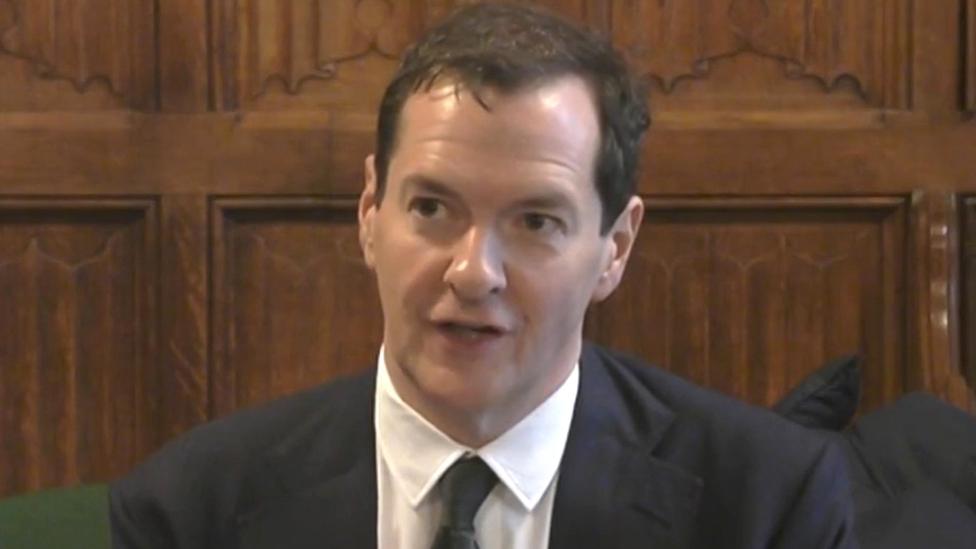British Museum signs £50m funding deal with BP
- Published
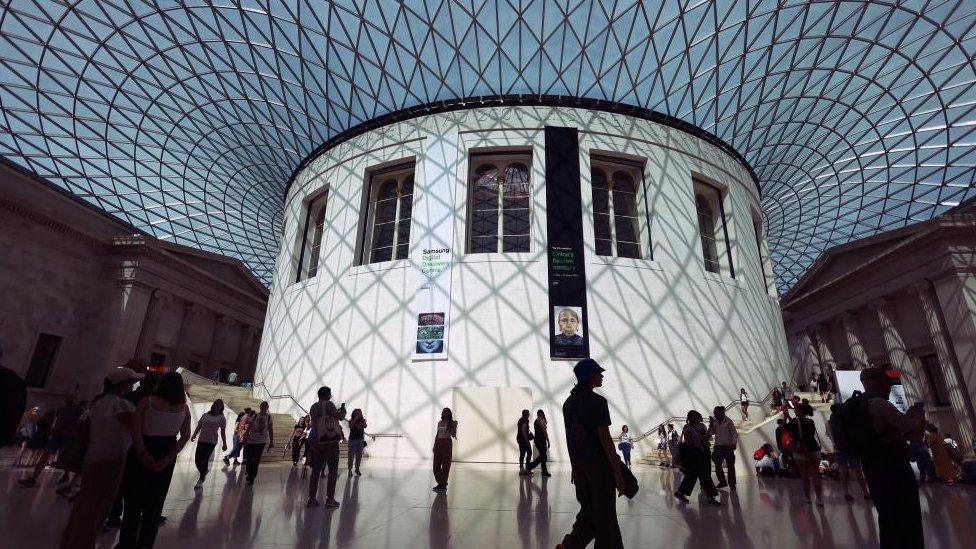
The British Museum has struck a £50m deal with energy giant BP to help fund a major renovation programme.
The 10-year agreement was announced alongside plans to upgrade a third of the museum's galleries and "phase out" its reliance on fossil fuels.
The relationship with BP dates back to 1996 and climate campaigners have long criticised the decision to to take money from an oil and gas firm.
One group branded the new deal "out of touch" and "completely indefensible".
It is not the first time the British Museum has come under scrutiny over its ties with BP.
Egyptian writer Ahdaf Soueif quit her role on the board of trustees in 2019, citing the museum's willingness to take oil and gas money in her resignation statement.
More than 300 professionals working in the museum sector signed a February 2022 letter, external urging it to cut ties with BP, and protests have been staged inside the museum itself.
Minutes from a 27 November meeting of the British Museum's board of trustees reveal one member, Muriel Gray, quit ahead of a discussion about the upcoming BP announcement.
Her resignation was described as a "personal decision". BBC News has attempted to reach Ms Gray for comment.
The same minutes show trustees discussed the security implications of their upcoming announcement and are mindful of "increased risks to museums as a result of protest activity".
The minutes said independent advice would be sought about enhancing security of objects in the museum to coincide with the BP announcement. They showed there was also a discussion about "the potential impact of a high-profile announcement on the personal safety of staff and Trustees".
Several major cultural sites in the UK, including the National Gallery and National Theatre, have ended lucrative sponsorship deals with energy firms amid protests.
Lord Ed Vaizey, a former Conservative culture minister, welcomed the "bold" announcement, and said the agreement was the "right decision" for the museum.
He told BBC Radio 4's PM programme: "We tend to treat BP as a pariah - BP has put a huge amount into the arts and has been treated very badly by some of the beneficiaries of that funding."
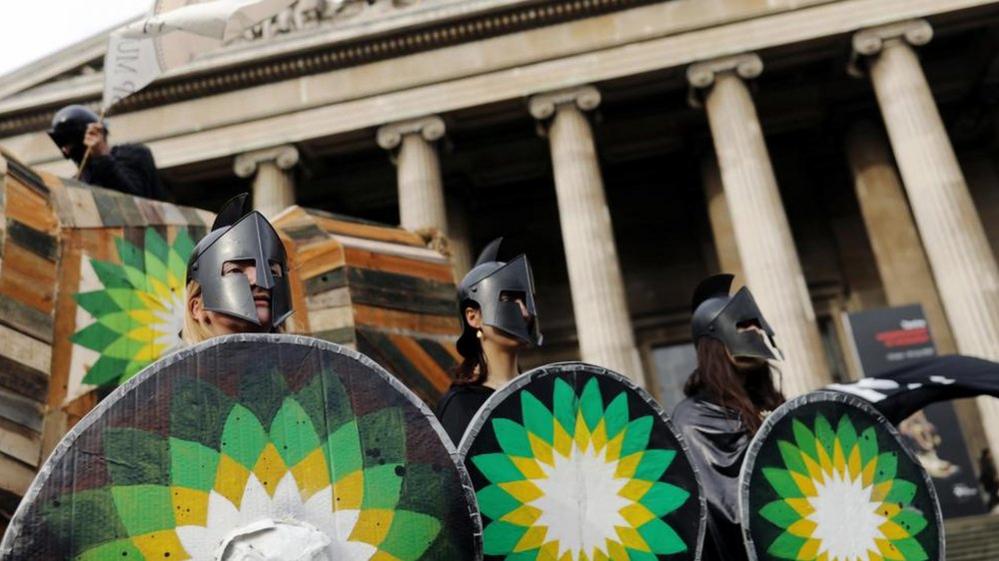
Climate protesters have demonstrated against the museum's ties with BP
Chris Garrard, of pressure group Culture Unstained, said: "The only way you can sign up to a new sponsorship deal with a planet-wrecking fossil fuel company in 2023 is by burying your head in the sand, pretending the climate crisis isn't happening and ignoring the almost complete rejection of fossil fuel funding by the cultural sector in recent years."
The museum's deal with BP comes with some of the Bloomsbury site's 200-year-old buildings in "urgent need of refurbishment", according to Charlie Mayfield, chair of the British Museum's masterplan committee.
He said "the process of completely overhauling our outdated energy infrastructure" to cut the museum's emissions would begin next year, alongside a competition to find an architect to redesign settings for some of the world's most famous artefacts.
Louise Kingham, senior vice president for BP in Europe and the UK, said the company is "proud to be a long-term partner to this important British institution and play our part in its future transformation".
The announcement of new funding and renovation comes after a difficult period for one of the UK's most internationally renowned cultural institutions.
In August, the museum announced a number of items from its collection had gone missing. It later emerged that as many as 2,000 objects were unaccounted for.
British Museum bosses believe Peter Higgs, who was a senior curator at the museum, stole the artefacts. He has previously denied any wrongdoing and his family told reporters in August that he was innocent and "devastated" to have lost his job.
The incident was highly embarrassing for the museum and some in the antiquities world criticised museum bosses for failures in its system to record the items in its care.
An independent review, external recently instructed the museum to improve its recording methods.
Last week, the BBC revealed deputy director Dr Jonathan Williams had agreed to step back from his duties after overseeing a botched investigation into the thefts.
George Osborne, the former chancellor who now serves as chair of the British Museum's board of trustees, said the museum is "putting our own house in order" after committing to implementing the findings of the review.
Related topics
- Published13 December 2023
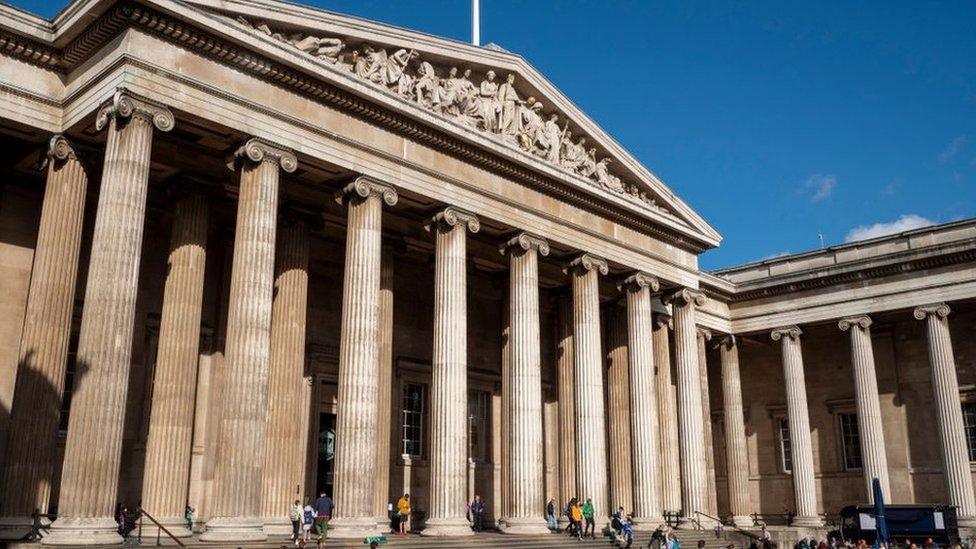
- Published29 November 2023
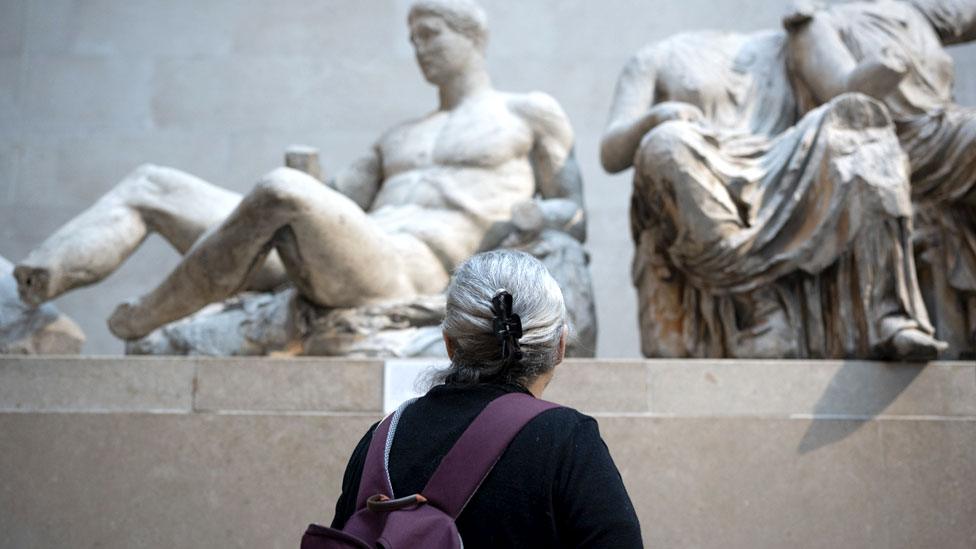
- Published18 October 2023
